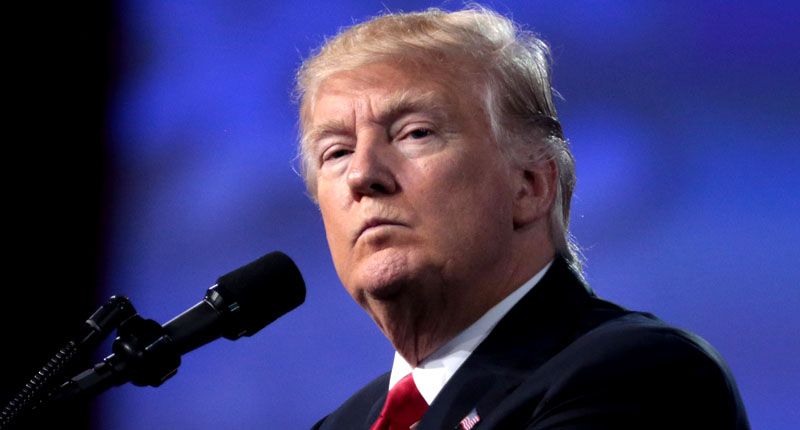Pres. Donald Trump's new travel ban -- which was halted by a Hawaii federal court before it could even go into effect -- flies directly in the face of the data provided to Trump and his aides, said the Washington Post on Thursday.
At least two of the reports that White House officials used to write what has been dubbed "Travel Ban 2.0," the Post said, "appear to undercut the government’s argument for a travel ban that it had hoped would take effect Thursday, according to several officials familiar with the documents."
One report -- titled "Most Foreign-Born US-Based Violent Extremists Radicalized After Entering Homeland" -- examined "90 cases of suspected or confirmed foreign-born terrorists, finding that most of them likely embraced extremist ideology after they arrived in the United States, not before," wrote the Post's Devlin Barrett, Abigail Hauslohner and David Nakamura.
A second report, compiled from classified FBI data, has been cited by the Trump administration as proof that refugees pose a heightened risk of becoming terrorists, but the numbers in the report point to the opposite conclusion, said officials familiar with the report.
"(M)ost of the suspects cited in the report came from countries unaffected by President Trump’s executive order," the Post said.
"Taken together, the two reports show there is a significant amount of internal government data that suggests the travel ban Trump wants to implement is not likely to be effective in curbing the threat of terrorism in the United States, these people said. The officials spoke on the condition of anonymity because some of the data is classified and none of it has been approved for public dissemination," the article continued.
Trump spokesman Michael Short told the Post that the officials leaking the reports are agents within the government who are trying to undermine the administration.
The president's second travel ban is not "in any way diminished" by the facts in the reports, Short insisted, before characterizing the release of the data as "selective and potentially criminal leaks being carried out by disgruntled government officials."
A Department of Homeland Security (DHS) official also defended the ban as a sensible response to individuals from countries “where state-sponsored terror and unstable governments make thorough investigation difficult.”
The officials who spoke to the Post said that research shows that individuals involved in terrorist activities after arriving in the U.S. typically entered the country at ages younger than 15, with their terrorist charges coming, on average, a decade after their arrival.
The report was commissioned by the Obama administration and focused on 88 terror arrests made between March 2011 and December of 2015. Examples included "a Bangladeshi terrorism suspect who came to the United States as a baby, and another suspect who was born in Cuba and didn’t show signs of embracing an extremist ideology until 26 years after moving to the United States," the Postsaid.
In spite of a lack of evidence supporting their conclusion that individuals from the Muslim-majority countries named in the ban pose a heightened risk of terrorism, the administration forged ahead with its second travel ban. A court-ordered stay on the first travel ban was maintained by the 9th Circuit Court of Appeals in February and the executive order was ultimately abandoned by the administration.
"Travel Ban 2.0" was blocked by Hawaiian federal judge hours before it was due to go into effect.
“The illogic of the Government’s contentions is palpable,” wrote U.S. District Judge Derrick K. Watson in a blistering 43-page opinion. The travel ban, he said, is clearly an attempt to target a specific religion and thereby violates the First Amendment to the U.S. Constitution.
